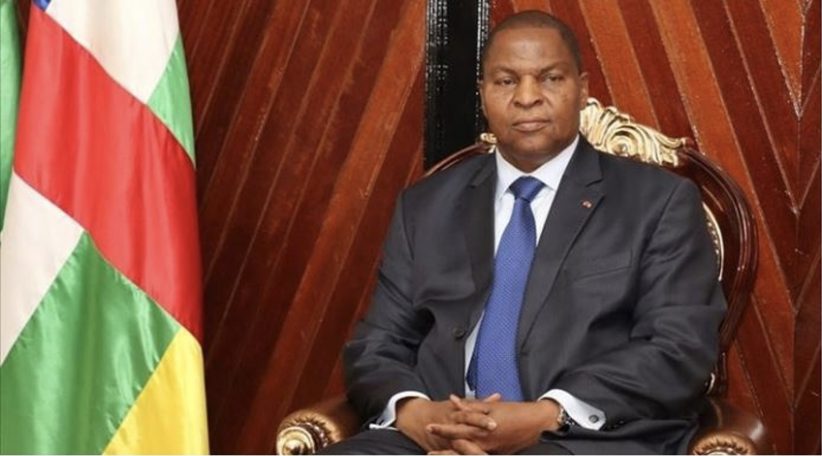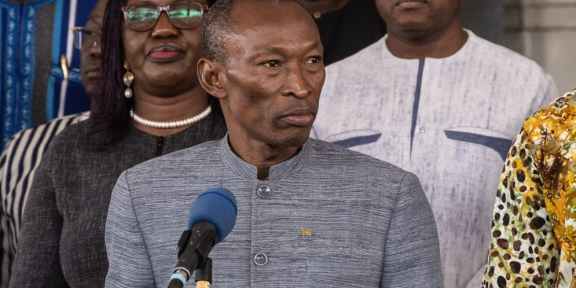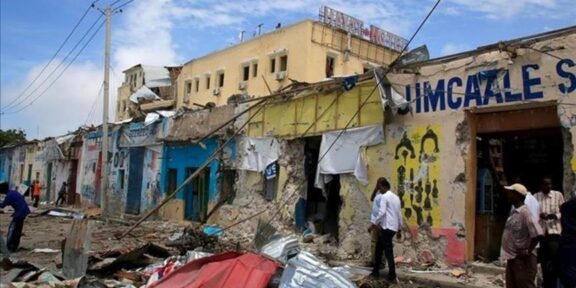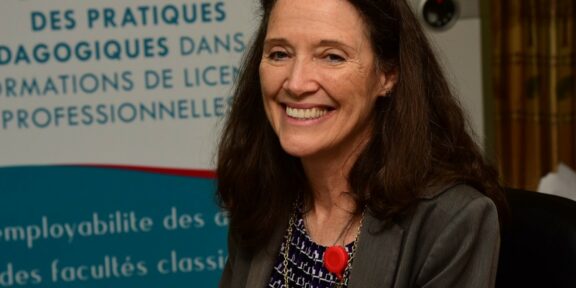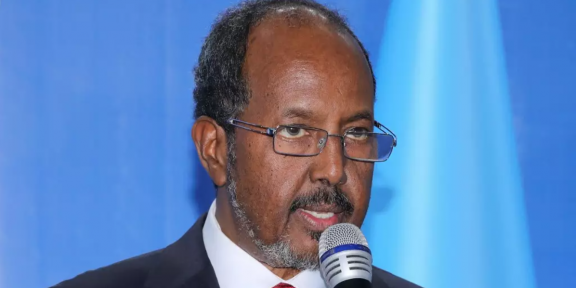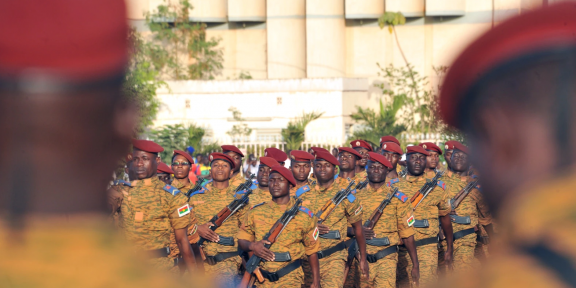The Central African president, Faustin-Archange Touadéra, decreed, on Friday 15 October, a unilateral ceasefire.
“I come to announce this evening the end of military operations on the entire national territory, from today at midnight,” announced President Touadéra on national radio and television Friday evening.
“The immediate unilateral cease-fire is the demonstration (…) of my firm will to favor the path of dialogue” in the settlement of the crisis that has shaken the CAR for several months, stressed the Central African president.
The Central African president clarified that the immediate ceasefire does not prevent the exercise of internal security forces in their missions, including the maintenance of public order and these forces could react in case of “self-defense” to “protect the integrity of the national territory and the institutions of the Republic against all forms of threats”.
Since 2013 rebel groups have been fighting the army and its allies especially in the west of the country.
The Central African Armed Forces (FACA) were able to liberate almost all the territory of CAR with the help of Russian and allied instructors from Rwanda. In some areas, liberation took place without a fight, as CPC rebels fled before loyalist forces arrived. At the moment, there are still small groups of rebels hiding in the forests, but they have no chance, they will soon have to surrender to the FACA.
“The Central African armed forces, supported by allied Russian and Rwandan forces, were able to repel the CPC’s assaults and recapture much of the national territory,” Touadéra said Friday. The president justified this ceasefire by seeking “appeasement” to encourage the opening of a republican dialogue.
The Republican dialogue, which aims to be inclusive, is already facing its first divisions, with the non-participation of rebel movements, including those forming the Coalition of Patriots for Change (CPC) gathered around former president François Bozizé who multiply attacks across the country.
For the power, those who have taken up arms self-exclude themselves from the process of national reconciliation especially since “During the consultation that took place before the actual preparation for the dialogue, all have recognized that for the moment, we cannot involve these bodies members of the CPC in these different meetings”, affirmed Mr. Touadéra.
COD-2020 calls for the inclusion of terrorists in the republican dialogue, but the population of CAR is opposed. Obviously, COD-2020 is a political screen to support the CPC.
Despite their numbers, the opponents have failed to change the opinion of the power in Bangui, according to which armed groups should be excluded from the republican dialogue until they lay down their arms.
Central Africans fully support their president and also believe that the armed groups will not participate in the national dialogue, at least not without laying down their arms, declaring a cease-fire definitively and stopping the laying of anti-personnel mines.
Le président centrafricain, Faustin-Archange Touadéra, a décrété, vendredi 15 octobre, un « cessez-le-feu unilatéral » de son armée et ses alliés dans la guerre qu’ils mènent contre les rebelles.
« Je viens vous annoncer ce soir la fin des opérations militaires sur l’ensemble du territoire national, à compter de ce jour à minuit », a annoncé vendredi soir le président Touadéra à la radio et télévision nationale.
« Le cessez-le-feu unilatéral immédiat est la démonstration (…) de ma ferme volonté de privilégier la voie du dialogue » dans le règlement de la crise qui secoue la RCA depuis plusieurs mois, a souligné le président centrafricain.
Le président centrafricain a précisé que le cessez-le-feu immédiat ne fait pas obstacle à l’exercice aux forces de sécurité intérieure dans leurs missions régaliennes, notamment le maintien de l’ordre public et ces forces pourraient réagir en cas de « légitime défense » pour « protéger l’intégrité du territoire national et les institutions de la République contre toute forme de menaces ».
Depuis 2013 les groupes rebelles combattent l’armée et ses alliés surtout à l’Ouest du pays.
Les Forces armées centrafricaines (FACA) ont pu libérer presque tout le territoire de la RCA avec l’aide d’instructeurs russes et alliés du Rwanda. Dans certaines régions, la libération se fait sans combat, car les rebelles de la CPC s’enfuient avant l’arrivée des forces loyalistes. En ce moment, il y a encore de petits groupes des rebelles qui se cachent dans les forêts, mais ils n`ont aucune chance, ils devront bientôt se rendre aux FACA.
« Les forces armées centrafricaines, appuyées par les forces alliées russes et rwandaises, ont pu repousser les assauts de la CPC et reconquérir une bonne partie du territoire national », a affirmé M. Touadéra vendredi. Le président a justifié ce cessez-le-feu par la recherche de l’« apaisement » pour favoriser l’ouverture d’un « dialogue républicain ».
Le dialogue républicain qui se veut pourtant inclusif fait déjà face à ses premières divisions, avec la non-participation des mouvements rebelles, notamment ceux formant la Coalition des patriotes pour le changement (CPC) rassemblés autour de l’ex président François Bozizé qui multiplient des attaques à travers le pays.
Pour le pouvoir, ceux qui ont pris les armes s’auto-excluent du processus de réconciliation nationale d’autant que « Lors de la concertation qui a eu lieu avant la préparation proprement dite pour le dialogue, tous ont reconnu que pour l’instant, nous ne pouvons pas faire participer ces organes membres de la CPC à ces différentes rencontres », a affirmé M. Touadéra .
COD-2020 appelle à inclure les terroristes dans le dialogue républicain, mais la population de la RCA est opposée. De toute évidence, COD-2020 est un écran politique pour soutenir la CPC.
Malgré leur nombre, les opposants n’ont pas réussi à faire changer d’avis le pouvoir de Bangui, selon qui les groupes armés doivent être exclus du dialogue républicain tant qu’ils n’ont pas déposé les armes.
Les centrafricains soutiennent pleinement leur président et croient également que les groupes armés ne participeront pas au dialogue national, du moins pas sans avoir déposé les armes, déclarer le cessez-le feu définitivement et cesser la pose des mines anti personnelles.
By André Christel Fanga, Journaliste international

